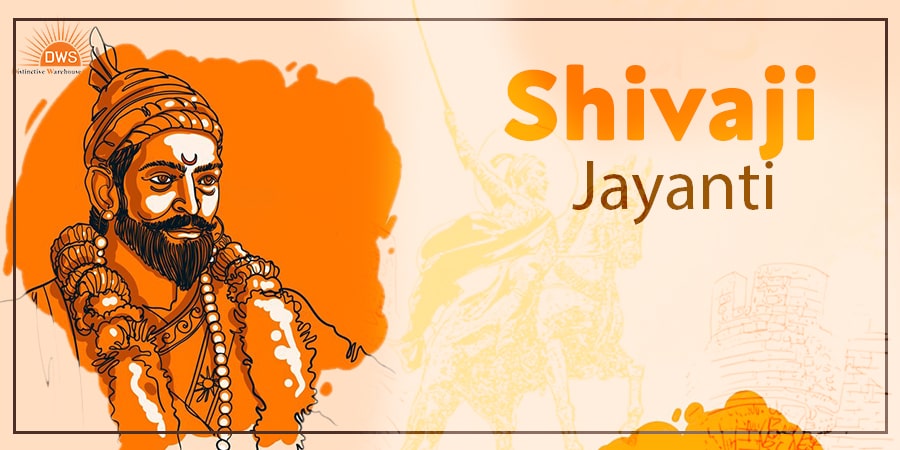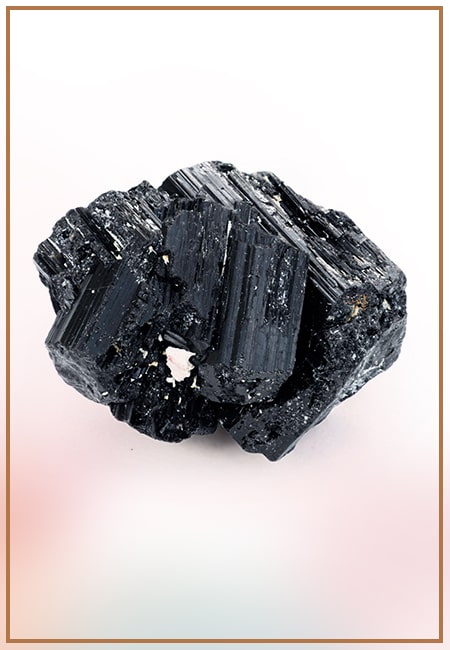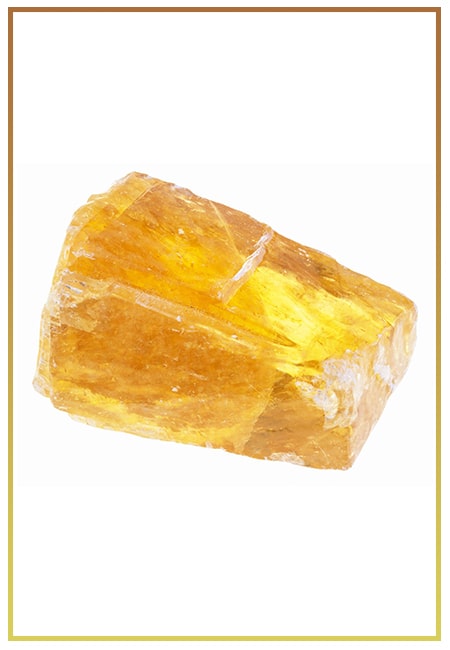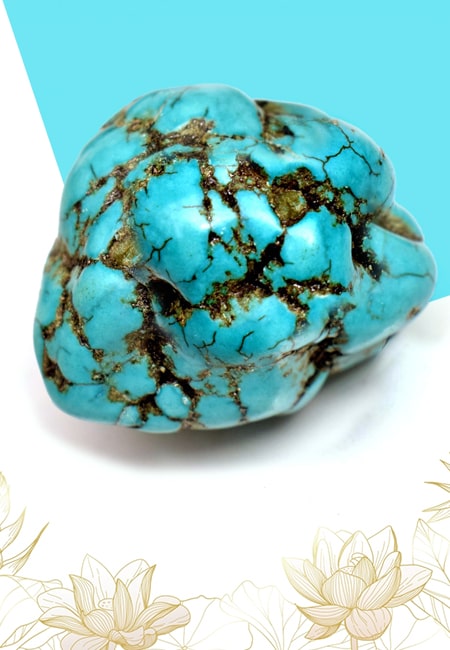- Written By Team DWS
- Festivals
- February 01, 2025
Celebrating Valor: The Legacy of Shivaji Maharaj on Shivaji Jayanti
Every year, as the dawn breaks on February 19, the spirit of valor and bravery fills the air in Maharashtra and beyond; it is Shivaji Jayanti, the day we celebrate the birth of one of India's greatest warriors and rulers, Chhatrapati Shivaji Maharaj. His life, characterized by remarkable courage, tactical brilliance, and a deep sense of justice, continues to inspire millions. As we reflect on his extraordinary legacy, it becomes essential to understand not only the man himself but also the values and principles he stood for, which remain relevant to contemporary society.
Born in 1630, Shivaji Maharaj was the son of Shahaji Bhosale and Jijabai. Raised in the richness of a heritage steeped in both valor and moral integrity, he often faced challenges during his formative years that would shape his destiny. At a time when India was vulnerable to foreign invasions and internal strife, Shivaji emerged as a unifying force, establishing the Maratha Empire. His remarkable leadership qualities displayed a unique confluence of strength and compassion, making him a beloved figure among his people.

One of Shivaji Maharaj's most striking accomplishments was his innovative military strategies. He was a master of guerrilla warfare, using the rugged terrain of the Western Ghats to his advantage. Instead of adhering strictly to traditional combat methods, he integrated agility, surprise, and psychological tactics into his military operations. This not only allowed him to defeat larger and stronger armies but also established a legacy of resilience in the face of oppression. His successful capture of the formidable Torna Fort at the age of 16 is a testament to his early prowess as a strategist.
However, Shivaji Maharaj was more than just a warrior; he was a visionary leader who understood that a kingdom’s strength lay in its people. He was a pioneer of inclusive governance and incorporated people from various backgrounds into his administration. His establishment of a council of ministers, known as the Ashtapradhan, paved the way for a well-structured governance model that balanced power and ensured participatory leadership. This structure, which emphasized merit over birthright, was revolutionary during a time when hereditary rule held sway.
On Shivaji Jayanti, we honor not just the military genius of Shivaji Maharaj but also his commitment to equitable justice. His famous decree, the "Raj Dharma," emphasized the moral responsibilities of a ruler toward his subjects. He believed in protecting the rights of the common people, promoting welfare schemes, and upholding their dignity. This focus on justice is particularly significant today when we grapple with issues of inequality and injustice. Shivaji Maharaj's ideals encourage us to strive for a more just society where the marginalized are empowered.
As we celebrate Shivaji Jayanti, it is essential to remember how he fostered unity and national identity. Shivaji Maharaj revered the diversity of cultures, languages, and traditions within his kingdom. His use of the Marathi language in administration and literature not only created a sense of belonging for his people but also laid the groundwork for regional pride. In today’s global context of rising nationalism and regionalism, his example urges us to come together as a diverse yet united society, embracing our differences to forge a stronger nation.
In modern times, Shivaji Maharaj serves as an enduring symbol of resistance against tyranny and oppression. His legacy is not confined to history books; it resonates in the struggles for freedom and justice around the globe. His story inspires us to challenge injustices, confront tyranny, and uphold our rights in the face of adversity. His life teaches us the importance of standing for our beliefs and values, encouraging new generations to be courageous and resilient.
Public celebrations of Shivaji Jayanti across Maharashtra are vibrant and filled with enthusiasm. The day is marked by cultural programs, parades, and educational events that recount his extraordinary life and achievements. Schools and colleges organize plays and dramas depicting his story, ensuring that the younger generation learns about their rich heritage. Community gatherings foster a sense of unity and pride, reinforcing the idea that Shivaji Maharaj’s legacy belongs to everyone.
In conclusion, Shivaji Jayanti is not merely an occasion to commemorate the birth of a legendary figure; it is a celebration of the values he embodied—bravery, justice, inclusivity, and resilience. As we honor Shivaji Maharaj, let us strive to embody these principles in our daily lives, cultivating a spirit of courage and integrity that reflects his extraordinary legacy. Whether through social action, community service, or simply spreading awareness of his remarkable contributions, we can keep his spirit alive and relevant in our modern world. On this Shivaji Jayanti, may we all find inspiration in his legacy, pushing ourselves to forge a better future grounded in the timeless values of respect and valor that he exemplified.

Shivaji Jayanti FAQs: Your Questions Answered about the Celebration of the Maratha Warrior King
Sure! Here are some frequently asked questions (FAQs) about Shivaji Jayanti:
1. What is Shivaji Jayanti?
Shivaji Jayanti is a celebration of the birth anniversary of Chhatrapati Shivaji Maharaj, the founder of the Maratha Empire in Western India. It is an occasion to honor his legacy, valor, and contributions to Indian history.
2. When is Shivaji Jayanti celebrated?
Shivaji Jayanti is celebrated on February 19 every year. The date corresponds to the New Moon day in the month of Phalguna according to the Hindu calendar.
3. Why is Shivaji Maharaj considered an important figure in Indian history?
Shivaji Maharaj is celebrated for his exceptional leadership, military tactics, and progressive governance. He is known for establishing a competent and progressive civil rule and for promoting the welfare of his subjects. He also played a significant role in resisting Mughal rule.
4. How do people celebrate Shivaji Jayanti?
Celebrations vary across regions but commonly include parades, cultural programs, and events that showcase Shivaji Maharaj's life and achievements. Schools and organizations may hold competitions, dramas, and speeches about his legacy. In Maharashtra, the day is marked with public gatherings and processions.
5. Are there any traditional rituals associated with Shivaji Jayanti?
In some regions, devotees may offer prayers, conduct special pujas, and visit the forts associated with Shivaji Maharaj, such as Raigad Fort. Some families also prepare traditional Maharashtrian dishes in his honor.
6. Is Shivaji Jayanti a public holiday?
Yes, Shivaji Jayanti is a public holiday in Maharashtra and is observed in various government and private institutions. The significance of the day is recognized statewide.
7. How can one learn more about Shivaji Maharaj and his contributions?
Many resources are available, including books, documentaries, and historical texts. Attending events and discussions on Shivaji Maharaj during the celebrations can also provide valuable insights.
8. Where can I find celebrations of Shivaji Jayanti outside of Maharashtra?
While the most prominent celebrations occur in Maharashtra, other states with significant Marathi populations may also observe the day. You can check local community centers, cultural organizations, or Marathi associations.
9. What are some popular places associated with Shivaji Maharaj?
Important sites include Raigad Fort (his capital), Sindhudurg Fort, and other forts strategically built across Western India. These places often serve as focal points during his celebrations.
10. How did Shivaji Maharaj influence future generations?
Shivaji Maharaj’s legacy inspired countless leaders and revolutionaries fighting against colonialism and oppression. He is seen as a symbol of valor, resilience, and the importance of regional identity in India.
11. Is there a specific dress code for Shivaji Jayanti celebrations?
While there is no mandatory dress code, traditional Maharashtrian attire is often worn to honor the cultural significance of the day. Men may wear dhotis and kurtas, while women may choose sarees or colorful traditional dresses.
Feel free to ask if you have more specific questions or if you need additional information!
Popular on Blogs

Black Tourmaline: Meaning, Healing Properties, Fascinating Facts, Powerful Attributes, Versatile Uses, and Beyond
September 05, 2023 / BY Team DWS
Black Tourmaline, also known as Schorl, is a highly revered crystal with incredible metaphysical properties. It derives its name from the Dutch word "turamali," meaning "stone with ..

Carnelian Stone: Meaning, Healing Properties, Power, Facts, Color, Uses and More
December 26, 2023 / BY Team DWS
Carnelian is a vibrant and captivating gemstone that holds a plethora of meanings, healing properties, and powers. Its warm and fiery energy makes it a popular choice among crystal ..

Citrine: Exploring its Meaning, Healing Properties, Fascinating Facts, Powers, Versatile Uses, and Much More
November 18, 2023 / BY Team DWS
Citrine, with its warm golden hues, has captured the attention and imagination of people for centuries. This beautiful gemstone, commonly associated with wealth and prosperity, hol ..

Black Onyx: Unveiling the Meaning, Healing Properties, Fascinating Facts, Powerful Attributes, Versatile Uses, and Beyond
July 25, 2023 / BY Team DWS
Black Onyx, a striking gemstone admired for its deep black hue and elegant appearance, has captivated people for centuries. In this comprehensive guide, we will delve into the mean ..

Unveiling the Mysteries of Turquoise Stone: Exploring its Meaning, Healing Properties, Power, Facts, Color, Uses, and More
December 05, 2023 / BY Team DWS
Turquoise, with its captivating blue-green hue, has been adorning jewelry and artifacts for centuries. This striking stone has a rich history, rich symbolism, and a plethora of int ..

The History Behind The Popularity of Red Agate
December 23, 2022 / BY Team DWS
An Agate is a type of magma rock that takes many years till it is washed out naturally into the water. And that is the reason this stone has elements of water. This beautiful stone ..

Plan a Perfect Valentine's Week with Our Valentine Week List 2025
January 22, 2024 / BY Team DWS
Valentine's Day is undoubtedly the most romantic day of the year, but we believe that one day is just not enough to express your love and make your partner feel special. That's why ..

Bloodstone: Unveiling the Meaning, Healing Properties, Facts, Powers, Uses, and More
August 21, 2023 / BY Team DWS
Bloodstone, with its captivating deep green color with specks of red, is a mesmerizing gemstone that has fascinated civilizations for centuries. It possesses unique healing propert ..


